Retro Replay Review
Gameplay
Star Wars: Jedi Knight – Dark Forces II builds on the solid shooter foundation of its predecessor by seamlessly integrating Force powers and lightsaber combat into its core gameplay. Players assume the role of Kyle Katarn, transitioning from blaster-wielding mercenary to budding Jedi Knight. Early levels emphasize ranged combat with pistols and rifles, while later stages challenge you to master the iconic lightsaber, blending precision attacks with defensive parries.
(HEY YOU!! We hope you enjoy! We try not to run ads. So basically, this is a very expensive hobby running this site. Please consider joining us for updates, forums, and more. Network w/ us to make some cash or friends while retro gaming, and you can win some free retro games for posting. Okay, carry on 👍)
The inclusion of three distinct Force power trees—light, dark and neutral—adds depth and replayability. Light powers such as healing and shields encourage a defensive, altruistic approach, whereas dark powers like Force choke and Force lightning reward aggressive tactics. Neutral powers boost mobility, granting Kyle enhanced speed and super jumps, essential for navigating complex environments and uncovering hidden secrets.
A noteworthy feature is the star-based upgrade system. Completing missions grants stars that you allocate among the 14 available Force abilities, allowing you to tailor Kyle’s growth to your playstyle. Devoting all points to one alignment unlocks a powerful bonus ability, inviting multiple playthroughs. The branching light/dark storyline also influences gameplay, as certain powers or dialogue options become exclusive depending on your moral choices.
Beyond combat, Dark Forces II incorporates stealth segments, puzzle-solving and exploration. Interactive level design rewards curiosity—searching every nook can reveal health or ammunition caches, alternate routes, and hidden lore. Balancing action with problem-solving makes the experience feel varied and keeps the pacing tight throughout the roughly ten-hour campaign.
Graphics
Given its 1997 release, Jedi Knight’s graphics were groundbreaking for the time, delivering fully 3D-rendered environments with dynamic lighting that brought the Star Wars universe to life. From the dusty caverns of the Valley of the Jedi to the dimly lit corridors of Imperial installations, the game uses contrasting palettes to evoke mood and tension.
Kyle’s character model and enemy NPCs are surprisingly detailed, with animation sequences that transition smoothly between walking, strafing, aiming and Force motions. Lightsaber battles benefit from vivid particle effects and glow shaders that feel authentic, especially when dueling Sith acolytes or deflecting enemy fire back at stormtroopers.
The live-action cutscenes, featuring actors in Jedi and Sith costumes, stand out as a unique storytelling device. While the video quality is modest by today’s standards, their dramatic flair and theatrical performances enhance immersion, bridging levels with cinematic tension and character development that purely in-engine cutscenes might lack.
On modern systems, Jedi Knight can run in high resolutions with upscaled textures and improved filtering. Fan-made enhancements further polish the visuals, ensuring that newcomers can enjoy the game’s retro aesthetic without sacrificing clarity or performance.
Story
Dark Forces II picks up after Return of the Jedi, casting Kyle Katarn in the center of a personal and galactic conflict. Tasked with recovering his lost lightsaber and discovering his Jedi heritage, Kyle’s journey takes him across exotic planets, derelict starships and the mysterious Valley of the Jedi. The narrative strikes a balance between swashbuckling adventure and introspective growth.
The overarching plot pits Kyle against the cunning Sith Lord Jerec, whose own quest to harness the Valley’s untold power serves as a dark mirror to Kyle’s path. Jerec’s cold ambition and personal connection to Kyle—being responsible for his father’s death—raise the emotional stakes. Cutscenes and in-engine dialogue reveal subtle character moments, forcing players to weigh moral choices that will ultimately define Kyle’s destiny.
Branching storylines and multiple endings reinforce the theme of choice and consequence. Opting for light-side actions like sparing innocents leads to a hopeful finale, whereas indulgence in dark-side powers drives Kyle down a more ruthless path. This duality encourages replay, letting you experience the story from both moral perspectives.
Supporting characters—Rebel contacts, Remnant Force-wielders, and even Imperial personnel—add depth to the campaign. Brief but poignant interactions flesh out the universe, ensuring that each mission feels like part of a grander Star Wars saga rather than an isolated shooter level.
Overall Experience
Decades after its release, Star Wars: Jedi Knight – Dark Forces II remains a benchmark for merging first-person shooting with Force-based abilities. Its well-paced levels, satisfying combat mechanics and robust power-progression system set a template still emulated by modern action-adventure titles.
The game’s blend of varied gameplay—switching between blasters, lightsaber duels and Force-enhanced maneuvers—keeps the experience fresh. Fans of classic shooters will appreciate the tight gunplay, while Star Wars enthusiasts will relish embodying a Jedi, complete with moral dilemmas that affect narrative outcomes and gameplay options.
Live-action cutscenes and a memorable cast strengthen the game’s storytelling, giving Kyle Katarn a charismatic presence and making the confrontation with Jerec genuinely compelling. Replay value is high, with both light- and dark-side playthroughs offering distinct powers, dialogue and endings.
For anyone seeking a classic Star Wars adventure that combines shooter thrills with Force mastery, Jedi Knight delivers an experience that stands the test of time. Its enduring design and emotional core ensure it remains a must-play for genre fans and series devotees alike.
 Retro Replay Retro Replay gaming reviews, news, emulation, geek stuff and more!
Retro Replay Retro Replay gaming reviews, news, emulation, geek stuff and more!
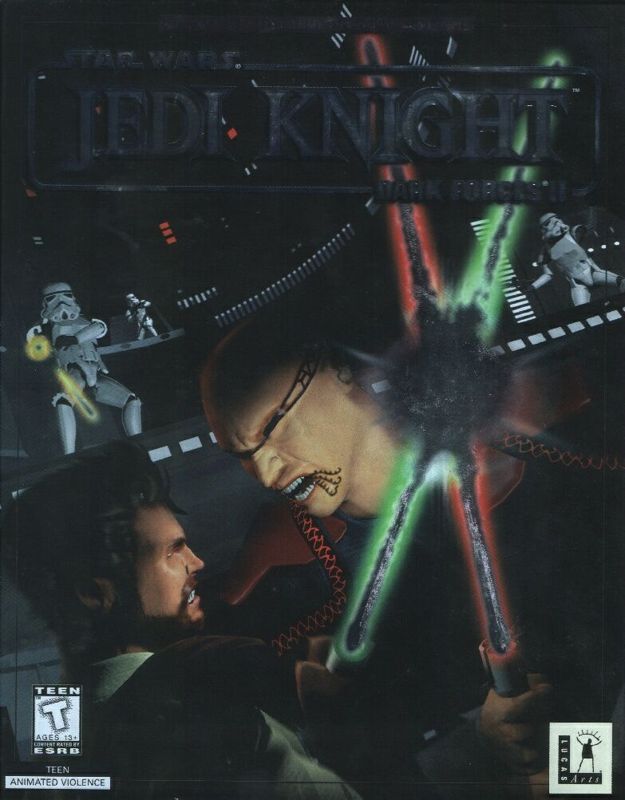
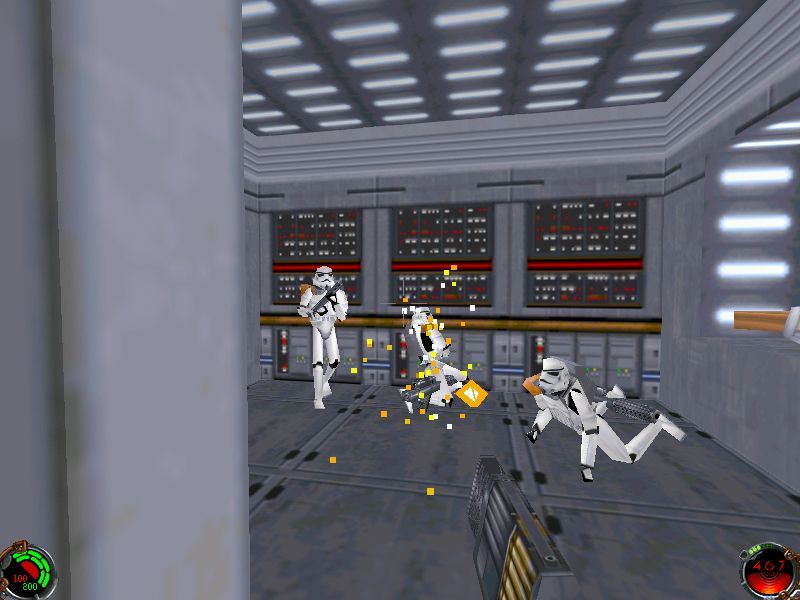
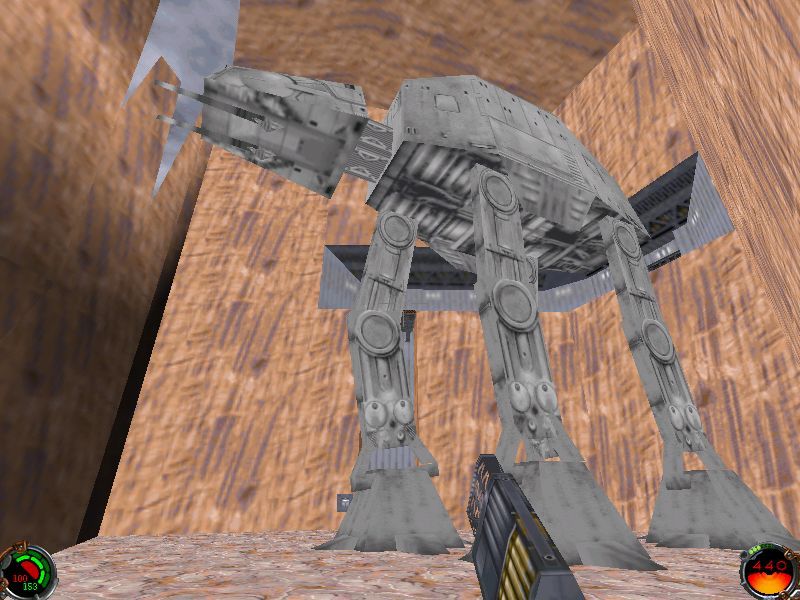
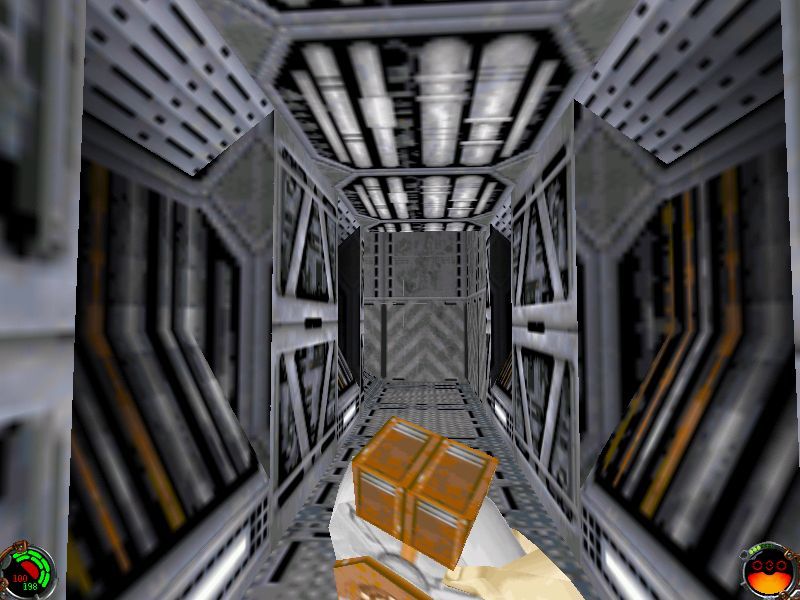
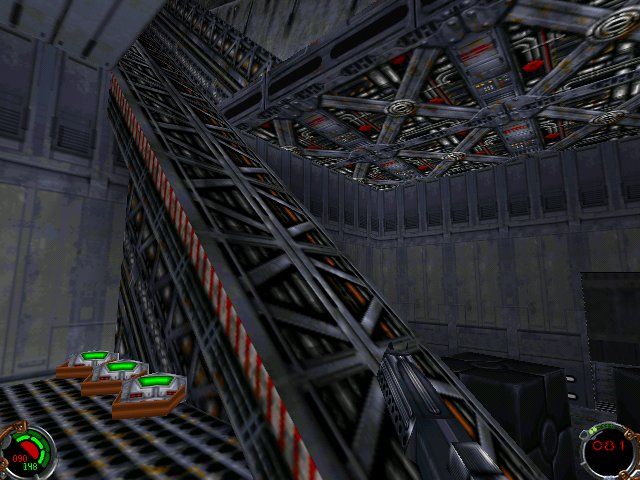
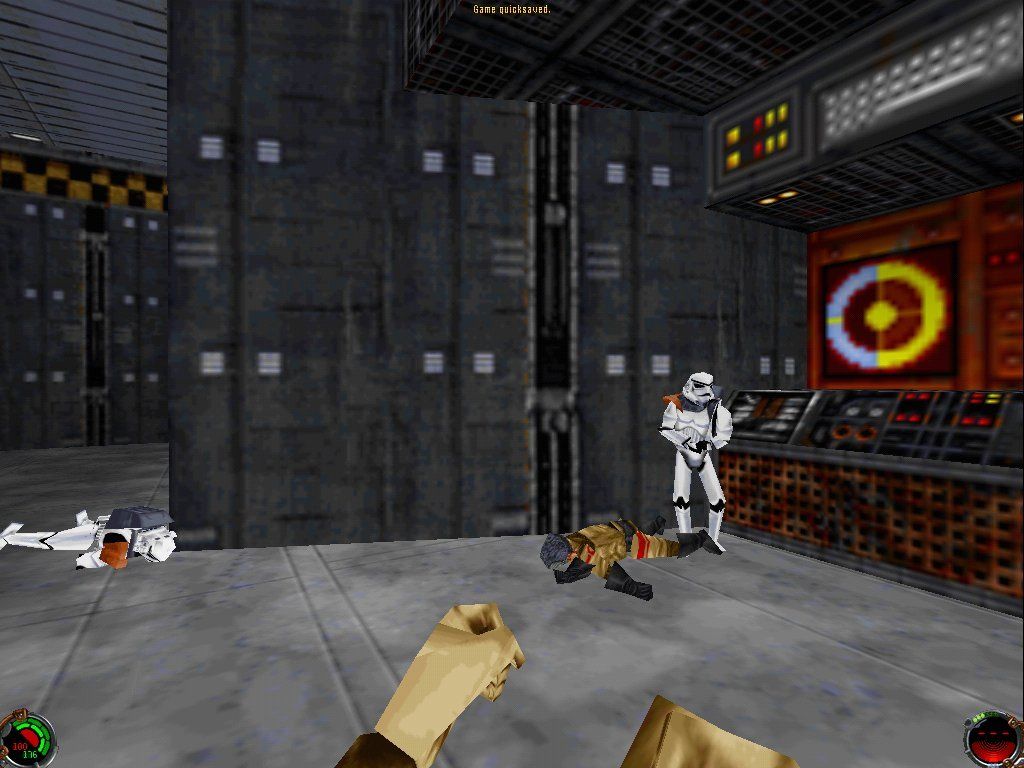
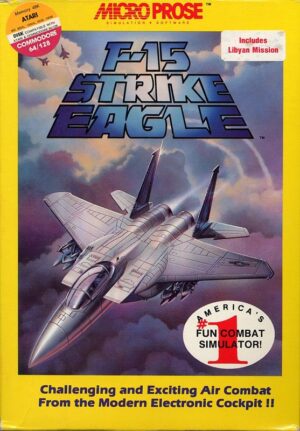


Reviews
There are no reviews yet.